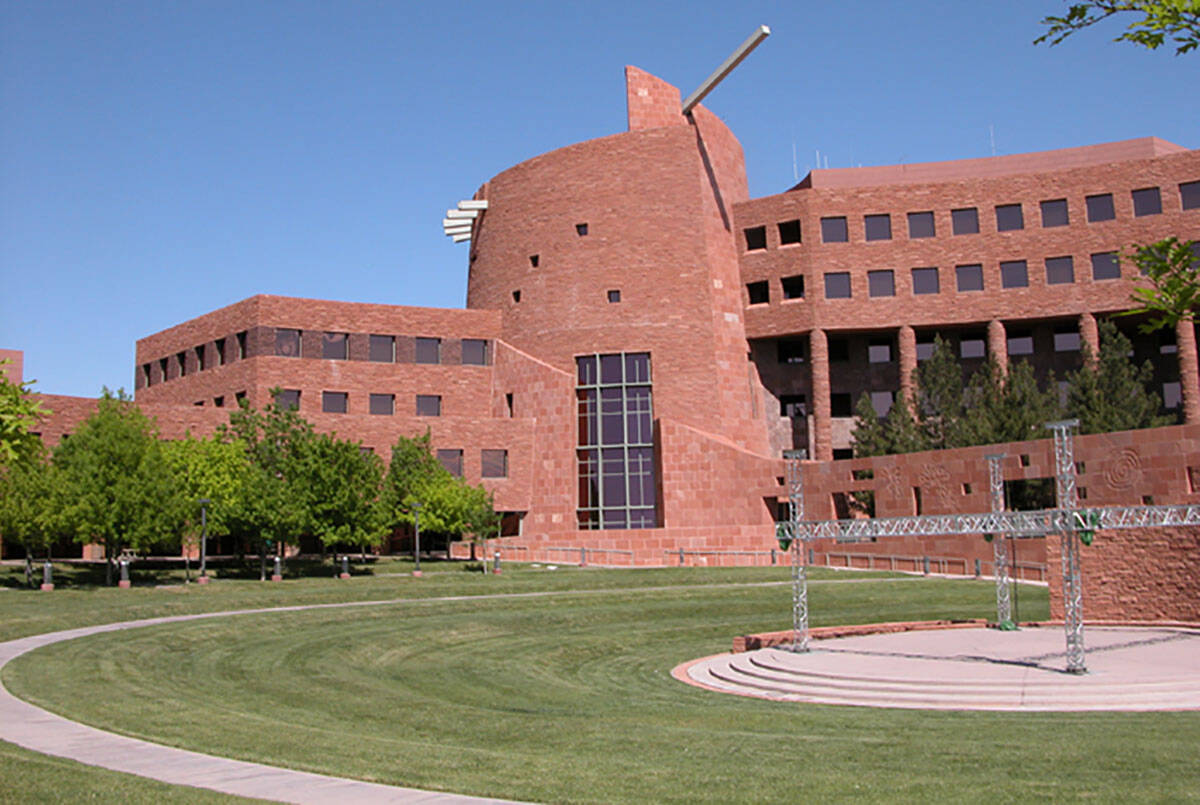Clark County predicts nearly 14% budget increase amid ‘strong recovery’
Clark County is continuing its strong recovery from a pandemic that had battered its tourism economy, although it needs to beef up its workforce amid increased social service demands, budget projections released Tuesday show.
In a sign of the ongoing rebound for the Las Vegas Strip, which the county oversees, consolidated tax is expected to grow 20 percent over fiscal year 2022, according to the preliminary tentative fiscal year 2023 budget.
The tax category primarily consists of sales tax and it is a driving force behind a projected $1.74 billion general fund spending plan for the fiscal year beginning on July 1. The budget would represent a nearly 14 percent increase over the $1.53 billion budget that lawmakers passed last year.
County Chief Financial Officer Jessica Colvin said the county has seen a “strong recovery” that helped to inform forecasts for the upcoming budget, which she presented to the county commission.
“If you remember when looking back at last year at this time, we were still under some significant COVID mitigations,” Colvin said. “The vaccines had just come out. We were unsure or uncertain on what the reopening was going to look like and the impact to the economy.”
It has been roughly 10 months since the county fully reopened and dropped face mask mandates in many cases for fully vaccinated people. An indoor mandate was reinstated by Gov. Steve Sisolak in July and then lifted last month as COVID-19 cases and hospitalizations continued to decline.
Visitation to Las Vegas in 2021 was better than in 2020, when the pandemic emerged to the public, but still roughly 24 percent less than in 2019, according to the Las Vegas Convention and Visitors Authority.
Millions lost
The public health crisis’s effect on the county’s operations is tangible: It lost $454 million in revenues that it was expected to otherwise receive since March 2020, according to Colvin.
Those dollars could have supported additional county operations or services, she said.
One major issue in the county remains the lack of available affordable rental homes. Nevada has the fewest in the country and the Las Vegas region is short more than 86,000 units for very and extremely low-income renters, according to Colvin.
The county has implemented rental assistance, temporary housing and emergency shelter programs, and it is working on expanding permanent housing and potentially setting up a Community Housing Fund to add a layer of financing in complex affordable housing projects, she said.
Staffing shortage
Meanwhile, workload has significantly increased in recent years for the county’s roughly 10,000-employee workforce, but staffing remains behind pre-recession 2009 figures.
There has been a 487 percent increase in workload regarding chronic homelessness between 2016 and 2021, according to Colvin, and lesser but still substantial increases in child abuse-related calls, cases and investigations.
A county call center saw an 18-percent uptick in social service inquiries from 2012 to 2021, compounded by the pandemic, Colvin said.
But the county’s full-time workforce shrunk by 2.8 percent between 2009 and 2021 as the county’s population grew nearly 19 percent. Where the county had 2.28 full-time employees for every 1,000 residents more than a decade ago, it has about 1.87 now.
The shortage of public employees extends beyond the county: The state ranks second to last in the nation, Colvin said.
County Manager Yolanda King said the county needed to both add positions and fill some 900 vacancies. Property tax caps have stunted the county’s revenue growth and contributed to the staffing shortages, according to Colvin.
The county is projecting a roughly $34 million surplus for fiscal year 2023, and officials have recommended putting slightly more than half of those funds toward county departments. The remainder could pay mandates tied to recent legislation, including staffing and services to extend foster care and provide assistance for sexually exploited children, as well as adding a fire station on Rainbow Boulevard and Blue Diamond Road.
A final budget is not due to the state until June 1, meaning it could still change.
Contact Shea Johnson at sjohnson@reviewjournal.com or 702-383-0272. Follow @Shea_LVRJ on Twitter.























